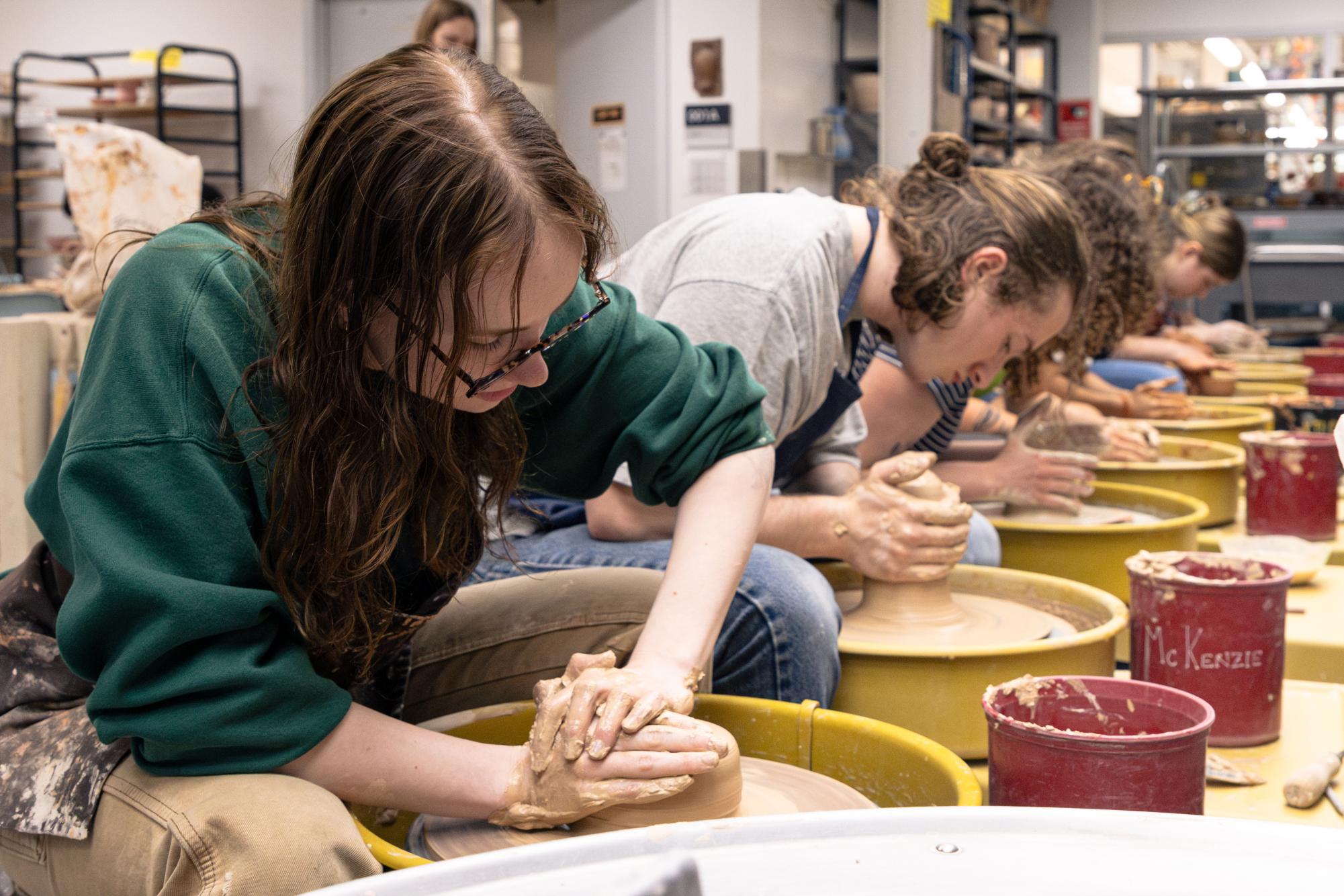The sensory motor cortex, a slice of brain dedicated to sensing and moving different parts of your body, is topologically divided; the nerves that control and sense your right leg are found in a very certain location, the nerves that control and sense your left shoulder are found in a different location.
About a third of the cortex is dedicated to moving the face, another third to everything below the neck, and the last third is dedicated solely to the movement and control of fingers and hands.
“There is a very high concentration of sensory neurons within the pads of our hands. Within our hands and the soles of our feet, [nerves are] very highly concentrated,” said Sarah Clark, an Assistant Professor in the Department of Biochemistry & Biophysics at Oregon State University. “Interestingly, a lot of medieval torture techniques involved the soles of the feet.”
If the mapping of our brains is any indication, hands are important.
In fact, research has begun to show that complex hand activities, like crafting, painting, knitting and other fine motor activities could impact how we think and feel.
An article published in the journal Neuroscience investigated how mice with depressive-like symptoms responded to an effort-based reward preclinical model. Effort-based rewards are almost exactly what they sound like: the mice were rewarded with cereal after putting in some amount of effort into the tasks, and their hormone levels compared to those who received a cereal reward without any effort.
This is thought to strengthen associations between effort and rewards, leading to increased persistence in an unsolvable task.
The conclusions of the study showed that the mice participating in effort-based rewards had healthier stress hormone levels and were better at problem solving compared to those who didn’t.
Ellie Counts, a third-year Graphic Design student at OSU has found that this sense of accomplishment in painting and textile arts can also help with everyday problems.
“I like how all the problems (in crafts) are solvable. They’re difficult. They’re a challenge. But if I am having trouble solving problems elsewhere in my life, I know I can put my head down and finish that up and have something accomplished,” Counts said.
In fact, another article investigated how knitting specifically reduced stress in cancer patients. The authors of the study posited that skill learning, which relies upon implicit memory (memories you don’t necessarily have to work to remember), promotes the formation and reorganization of neuron connections.
The results of that study confirmed this hypothesis, that using tactile and fine motor skills may reduce stress.
Brandon Wied, a third year Mechanical Engineering student at OSU has been blacksmithing since he was 14, and is now the president of the OSU Blacksmithing Club. For him, the effort and creation of something is only a part of it.
“You get to be creative, you get to be artistic, you get to do all these things. And a lot of the times when you’re making something yourself, you don’t care if it comes out perfect,” Wied said. “You learn that not everything’s gonna be perfect. And that’s all right.”
Mental illnesses like anxiety and depression have the propensity to not see mistakes for what they are. But personal hobbies can be a place to make those mistakes in a more controlled environment, sometimes that is alone, or within a community.
“Another good part about it is you can always find someone you need to help or you can help. And so it makes you feel a little bit better when you’re like, ‘Oh, I can actually help someone,’” Wied said. “And that can at least help with my mental health. It feels good to show someone something.”
For some students, those communities don’t always exist on campus, but they exist online and in other spaces.
“My guilty pleasure is Facebook groups,” Counts said. “My favorite one is my cross stitch group, where people come together to like, get advice. Or even complained together about common pitfalls and sometimes to hate on other people’s pictures, which is probably not good for their mental health. It’s good for mine because it makes me laugh.”
While the link between the tactile sense of making something with your hands and good mental health is proving to be more and more complex, it is also becoming scientifically stronger. Even with the backing of research, though, it’s not exactly a new concept.
“You’re turning something destructive into something constructive,” Wied said. “It’s literally forced self care.”


















































































![Newspaper clipping from February 25, 1970 in the Daily Barometer showing an article written by Bob Allen, past Barometer Editor. This article was written to spotlight both the student body’s lack of participation with student government at the time in conjunction with their class representatives response. [It’s important to note ASOSU was not structured identically to today’s standards, likely having a president on behalf of each class work together as one entity as opposed to one president representing all classes.]](https://dailybaro.orangemedianetwork.com/wp-content/uploads/2025/03/Screenshot-2025-03-12-1.00.42-PM-e1741811160853.png)

























